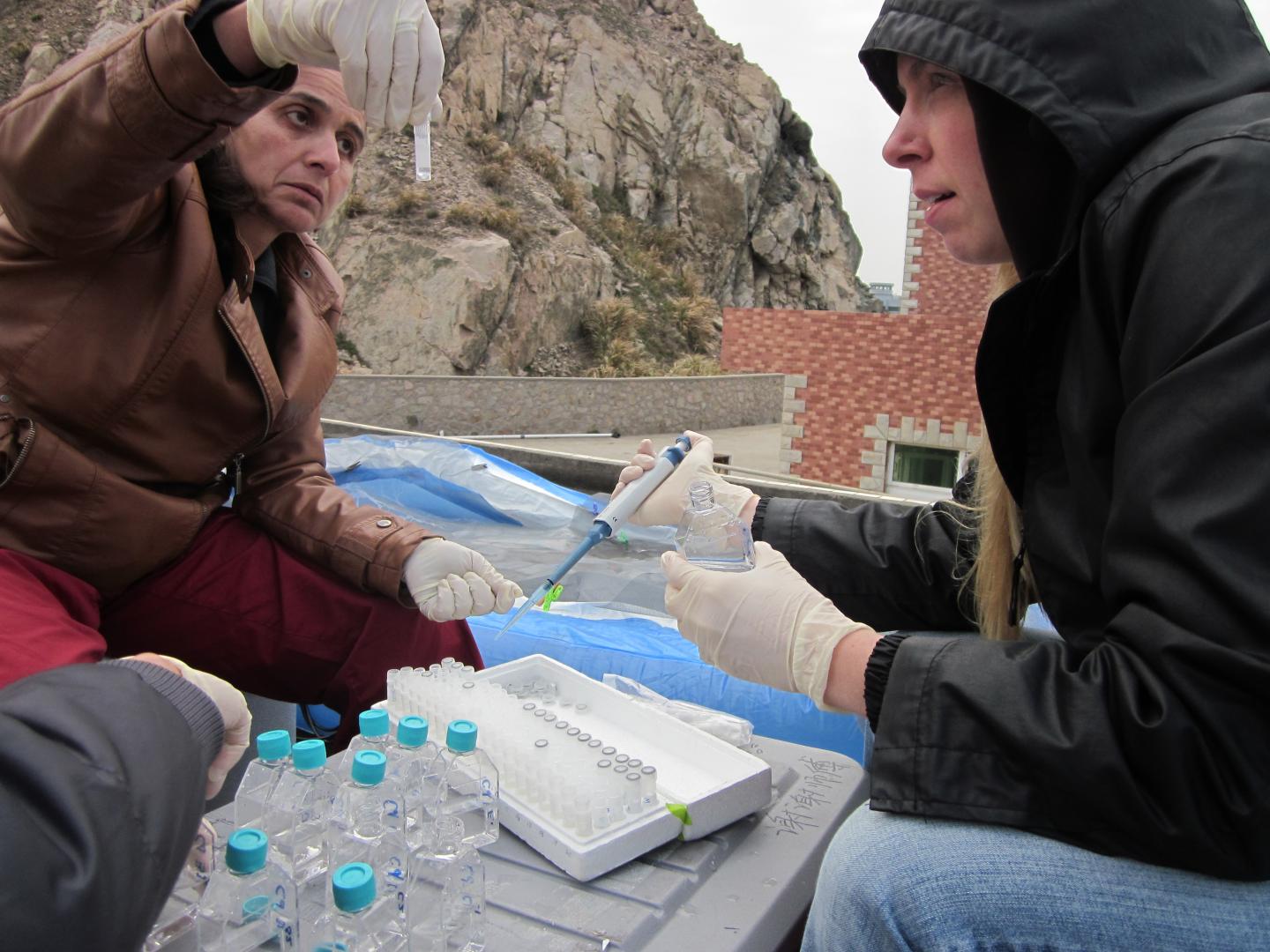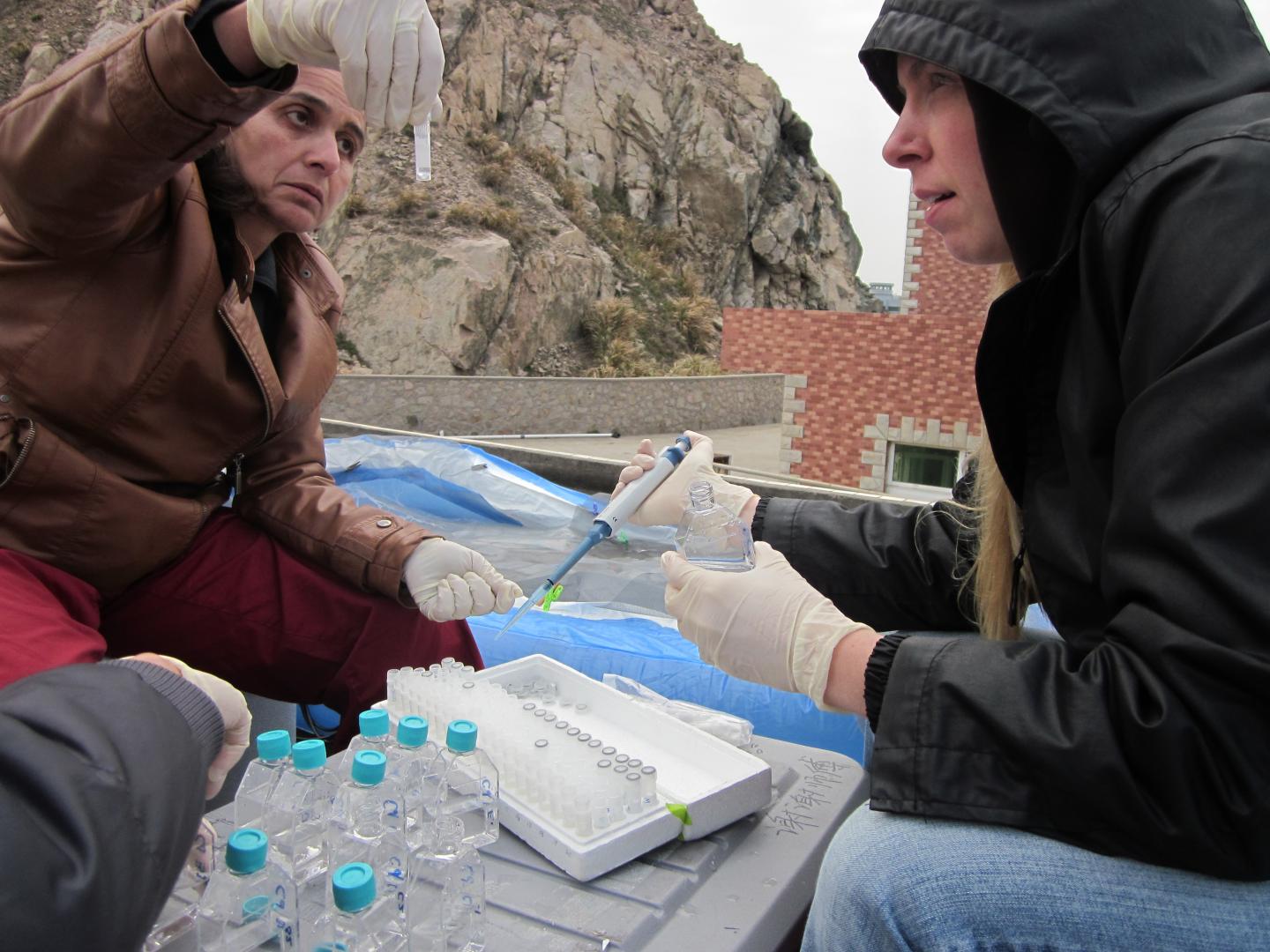
Credit: Courtesy of Katherine Mackey / UCI
Irvine, Calif., Jan. 31, 2017 – China's rapid ascent to global economic superpower is taking a toll on some of its ancient ways. For millennia, people have patterned their lives and diets around the vast fisheries of the East China Sea, but now those waters are increasingly threatened by human-caused, harmful algal blooms that choke off vital fish populations, according to a new study led by researchers at the University of California, Irvine.
"There has been massive growth in emissions from China's factories and cars over the past few decades, and what comes out of the smokestacks and tailpipes tends to be richer in nitrogen than phosphorus," said Katherine Mackey, assistant professor of Earth system science at UCI and lead author of the study, published recently in Frontiers in Marine Science.
Mackey and colleagues at Woods Hole Oceanographic Institution, China's Fudan University and Nanjing University, and UC Santa Cruz studied the deposition of particles in the ocean downwind of China's enormous industrial and population centers. They found that the winds carried an overabundance of nutrients offshore, where they fell into water to be taken up by marine organisms. That, together with runoff from rivers flowing into the sea, is causing changes to the region's ecology. Certain aquatic plants and plankton thrive on the extra nutrients, for instance, crowding out others and wreaking havoc among ocean-dwelling species' normal ratios.
"When you start having changes in the food web, you can see differences in the fish catch," Mackey said. "Harmful algal blooms and nuisance species that are cropping up can produce toxins or just aren't the type of food fish prefer to eat, so people have been noticing changes in the ecosystem in recent years."
One example: Metals that are the product of combustion and other industrial processes tend to dissolve more quickly than those carried out to sea in dust from such natural sources as deserts, she said. These human-generated substances give certain species of phytoplankton a competitive edge over others, leading to increasingly frequent and more intense algal blooms.
The researchers reviewed satellite data and government records dating back decades and found a clear correlation between the expansion of the country's industrial output and the growth of unwanted algae blooms.
In addition, they conducted experiments in a makeshift lab on the Shengsi Islands off coastal Shanghai at the mouth of the Yangtze River. Plying the waters of the East China Sea on a rented fishing vessel, team members collected samples and incubated them in the lab to determine how certain conditions could lead to a plankton imbalance.
The study concluded that adverse changes in the ocean ecosystem can be traced back to industry and agriculture and that the only way the process can be reversed is for humans to start addressing land-based pollution.
Mackey noted that climate change could play a growing role in the transformation of the East China Sea.
"As the climate warms, we might start seeing more of these nuisance blooms," she said. "It's like a double whammy. If you have higher temperatures favoring certain types of phytoplankton and you're monkeying with their nutrient supply, there are going to be unintended consequences."
###
About the University of California, Irvine: Founded in 1965, UCI is the youngest member of the prestigious Association of American Universities. The campus has produced three Nobel laureates and is known for its academic achievement, premier research, innovation and anteater mascot. Led by Chancellor Howard Gillman, UCI has more than 30,000 students and offers 192 degree programs. It's located in one of the world's safest and most economically vibrant communities and is Orange County's second-largest employer, contributing $5 billion annually to the local economy. For more on UCI, visit http://www.uci.edu.
Media access: Radio programs/stations may, for a fee, use an on-campus ISDN line to interview UCI faculty and experts, subject to availability and university approval. For more UCI news, visit news.uci.edu. Additional resources for journalists may be found at communications.uci.edu/for-journalists.
Media Contact
Brian Bell
[email protected]
949-824-8249
@UCIrvine
http://www.uci.edu
############
Story Source: Materials provided by Scienmag





